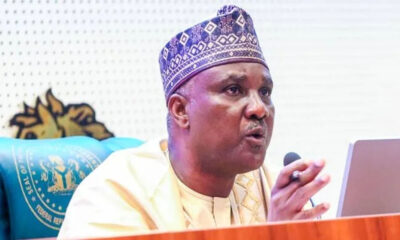News
Reps summon INEC chairman over delay in bye-elections
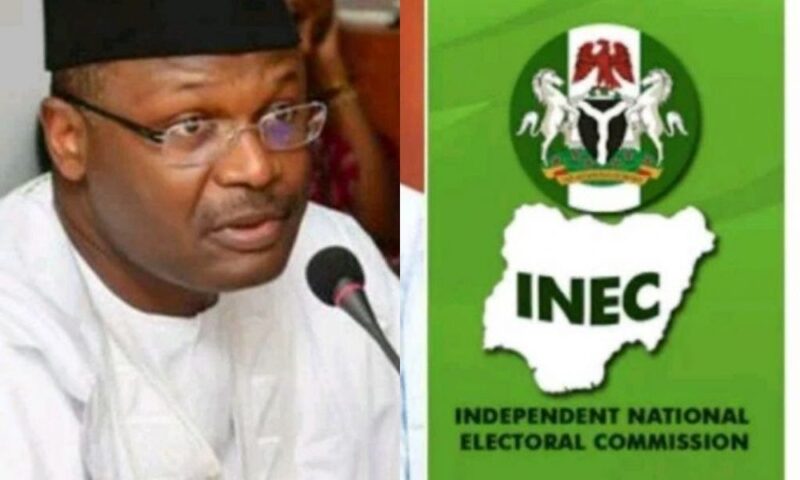
Reps summon INEC chairman over delay in bye-elections
The House of Representatives, yesterday, resolved to summon the chairman of the Independent National Electoral Commission (INEC), Yakubu Mahmood, over the delay to conduct bye-elections into vacant national and state assembly seats.
Consequently, the House mandated its Committee on Electoral Matters to investigate the electoral body over its inability to conduct the pending bye-elections.
The parliament, which took the resolution, following a motion by Jafaru Leko, also mandated its Committee on Legislative Compliance to ensure implementation and report back to it within four weeks for further legislative action.
Leko, in his motion, informed the House that there were several vacant seats in both the national and state assemblies. He argued that failure of INEC to conduct by-elections to fill the seats have left the constituents in the affected areas without representations.
“Since the 2023 general and subsequent elections, there have been instances of resignations, deaths, appointments, or appointments of former members of both the National and State Assemblies to executive positions.
“Section 68 of the Constitution provides for the cessation and vacation of seats of the National Assembly, whereas section 76(2) stresses the need for a bye-election to be conducted not later than one month after the vacancy occurs;
“Upon the declaration of these seats as vacant, the Independent National Electoral Commission (INEC) is obligated, under the provisions of Section 76(2), to conduct bye-elections to fill the vacant positions and ensure proper representation of the affected constituencies.”
READ ALSO:
- BREAKING: Nigerian govt seeks court order for Binance to pay $81bn fine, tax
- Despite Lookman’s goal, Club Brugge edge out Atalanta of Champions League
- Bandits kidnap former local govt chairman in Kebbi, burn his car
The lawmaker added that “Nigeria practices a constitutional democracy that the continued vacancy of these seats, without the holding of timely Bye-elections results in the disenfranchisement of the affected, citizens, which constitutes a violation of the constitutional principles of representation and deprives the electorates of their right to adequate representation.
“The delay in conducting the bye-elections for the vacant seats is a contravention of constitutional provision, a breach of the due process and denial of the affected constituencies’ proper representation;
“This Electoral inaction from the Independent National Electoral Commission (INEC) violates the principles of democracy and representative governance, leaving citizens unrepresented, and also obstructs legislative activities, as Committees and Plenary Sessions lack full participation from duly elected members.”
In another development, the House set up a special committee to conduct public hearings on the four tax reform bills, which scaled second reading last week.
The committee chaired by the chairman, House Committee on Finance, James Faleke, consisting of chairmen of the various caucuses and members of the finance committee, amongst others, is expected to hold a public hearing on the bills next week.
READ ALSO:
- APC accuses Lagos lawmakers of staging DSS invasion
- Kwara student killing: Court remands Islamic cleric, five others
- Lagos banker sentenced to four years for fraud
The House had approved the four bills for second reading, last Wednesday, after a debate on the general principles of the proposed legislations, which lasted for over three hours.
The proposed legislations, which were transmitted to the National Assembly by President Bola Tinubu on October 3, 2024 include: The Joint Revenue Board of Nigeria (Establishment) Bill, 2024, The Nigeria Revenue Service (Establishment) Bill, 2024, The Nigeria Tax Administration Bill, 2024 -and the Nigeria Tax Bill, 2024.
The bills, which were earlier trailed by controversies and protests by Northern elders and state governors, are intended to reform tax administration in the country.
The key provisions of the tax reform bills are increase in Value Added Tax ( VAT) and the distribution of revenue to the states. Section 146 of the Nigeria Tax Bill provides for an increase in VAT from the current 7.5 percent to 10 percent in 2025, 12 . 5 percent in 2026- 2029 and 15 percent in 2030.
Also, Section 77 of the Tax administration bills states that revenue accruing from VAT shall be distributed on to the three tiers of government as follows: Federal Government- 10 percent; state government- 55 percent and local government 35 percent, “ provided that 60 percent of the amount standing to the credit of states and local governments shall be distributed among them on the basis of derivation.”
Reps summon INEC chairman over delay in bye-elections
News
Libya nabs three Nigerians over drug trafficking

Libya nabs three Nigerians over drug trafficking
The Samnu Police Department in southern Libya detained three Nigerians for drug trafficking.
According to a statement issued by Migrant Rescue Watch on X (previously Twitter) on Sunday, the suspects were apprehended carrying a quantity of hashish that officials believe was meant for sale.
The arrests were made during a targeted operation in the town of Samnu, Murzuq region, which is known for smuggling and human trafficking due to its proximity to Libya’s southern borders.
READ ALSO:
- EFCC arrests 36 suspected internet fraudsters
- Obama reacts as Trump freezes $2.3b Harvard University funding
- Peter of P-square testifies against brother in fraud case
This operation is part of a larger security effort to combat drug-related crimes and cross-border trafficking of migrants.
The suspects’ identities have not yet been made public. Authorities acknowledged that the case had been turned over to the public prosecutor for further investigation and judicial action.
The statement said. “Samnu Police Dept. arrested 3 #migrants of Nigerian nationality on charges of drug trafficking. The trio were found in possession of a quantity of hashish earmarked for sale. The case was referred to public prosecution.”
Libya nabs three Nigerians over drug trafficking
News
NIS expands contactless passport renewal to United States, others

NIS expands contactless passport renewal to United States, others
The Nigeria Immigration Service (NIS) has announced the expansion of its Contactless Biometric Passport Application System to several countries in the Americas.
In a recent statement by ACI AS Akinlabi, Service Public Relations Officer at NIS Headquarters in Abuja, confirmed that the service under Comptroller General Kemi Nandap is rolling out the next stage of implementation across Brazil, the United States, Mexico, and Jamaica this month.
The contactless system, which enables Nigerians living abroad to renew their travel document without physically visiting passport offices for biometric enrollment, went live in the United States on April 11. Mexico, Brazil and Jamaica are scheduled to gain access on April 14.
READ ALSO:
- I don’t have a second wife or family – Super Eagles striker Brown Ideye
- OAU student electrocuted while retrieving football from nearby compound
- Bomb blast: Senator Ndume visits victims at hospital, offers financial support
“This expansion represents our commitment to innovative and efficient service delivery to Nigerians anywhere in the world,” said ACI AS Akinlabi, Service Public Relations Officer at NIS Headquarters in Abuja.
The application system is currently available on the Google Play Store as “NIS Mobile” and allows passport renewal without in-person biometric enrollment. An iOS version for Apple devices is under development and will be released soon, alongside an enhanced version of the Android app to improve user experience and accessibility.
The NIS further confirmed that the Contactless Passport App is now operational in Canada, the USA, Mexico, Jamaica, Brazil, Europe, and Asia. Australia and Nigeria itself remain pending, with implementation dates to be announced in the future.
NIS expands contactless passport renewal to United States, others
News
Tariff: NACCIMA warns against economic instability, job losses
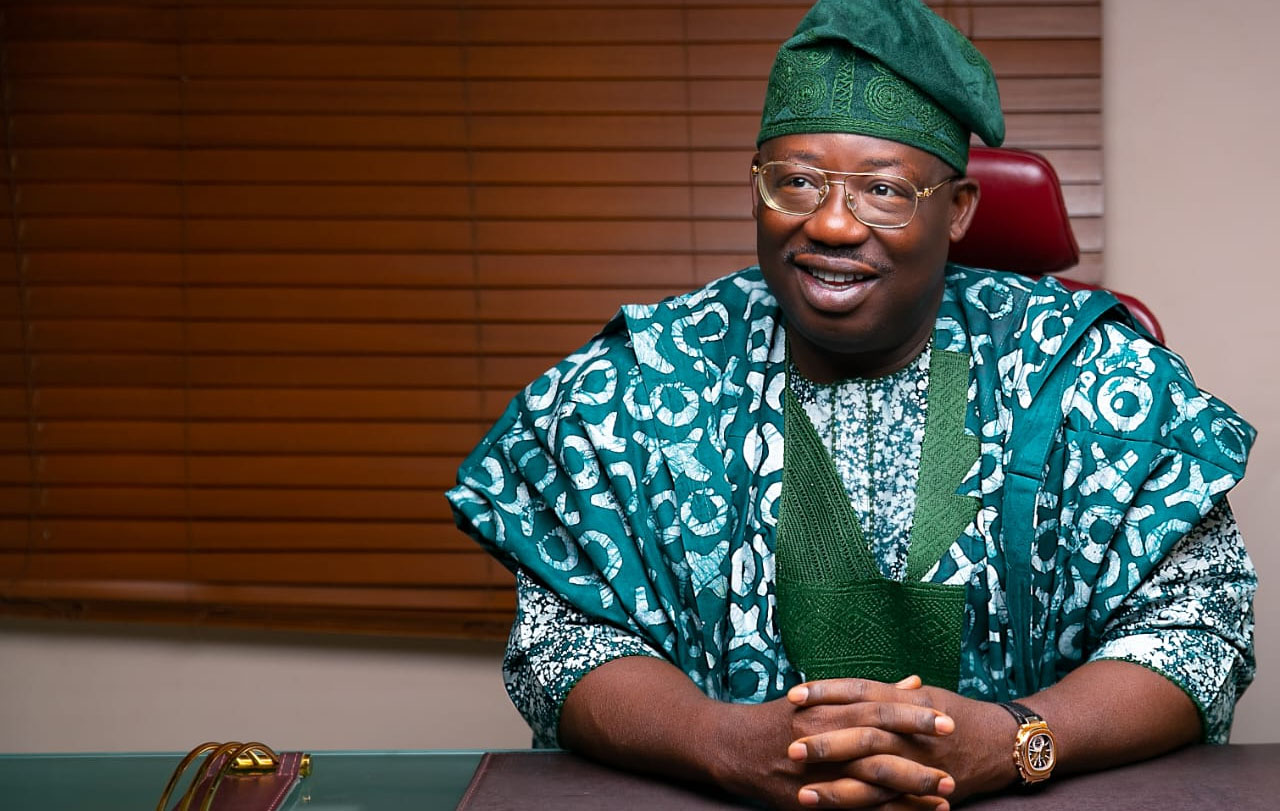
Tariff: NACCIMA warns against economic instability, job losses
The Nigerian Association of Chambers of Commerce, Industry, Mines, and Agriculture (NACCIMA) has expressed fear that unless the Federal Government takes deliberate steps to increase Nigeria’s non-export earnings, the current global tariff war may lead to job losses, low foreign exchange inflow, and economic instability.
This was the position of the President of NACCIMA, Dele Oye, as the chairman at the Vanguard Economic Discourse 2025 with the theme, “Nigeria’s Economic Outlook 2025: Hardship and Pathways to Sustainable Recovery”, held last week in Lagos.
Among other things, Oye who is also the Chairman of the Organised Private Sector of Nigeria (OPSN), emphasized the need for a viable and affordable homegrown democracy.
His words: “In this pivotal moment, we must recognize and confront the significant challenges before us—challenges that have been magnified by the advent of America’s “America First” policy.
READ ALSO:
- Portable arrested over alleged defamation against Osupa
- Varsity strike looms as NASU alleges secret ASUU-FG deal on allowance
- Despite trade spat with US, China exports rises 12.4%
“This paradigm shift in global trade, driven by protectionism and tariffs, presents a unique and formidable array of obstacles for developing nations such as ours.
“The world we once knew, one characterized by cooperative, rules-based trading systems under the World Trade Organization, has given way to an environment fraught with uncertainty. This transformation not only disrupts global markets and supply chains but poses an acute threat to our competitive standing in international trade.
“The recent implementation of a 14% tariff on Nigerian exports to the United States directly jeopardizes what has historically been a critical market for our key goods, including crude oil, liquefied natural gas, and agricultural products. “The ripple effects of reduced demand could precipitate job losses, economic instability, and a decline in vital foreign exchange inflows, particularly for our non-oil sectors”.
“Indeed, the ramifications of current U.S. policies go beyond tariffs. We are witnessing a significant decrease in funding for initiatives that empower Africa’s burgeoning start-ups. The $51 million cut from the United States Development Fund, which affects countries like Nigeria and Kenya, exemplifies the broader challenges we face. The grants previously allotted to our SMEs are critical for nurturing innovation and entrepreneurship within our local economies”.
In the face of these challenges, Oye said Nigeria must act decisively and strategically to reshape its economic destiny where adversity can give rise to opportunity.
Tariff: NACCIMA warns against economic instability, job losses
-

 Business1 day ago
Business1 day ago5 facts about trending digital trading platform, CBEX
-

 Education3 days ago
Education3 days agoNELFUND: How schools, banks are ripping off students
-
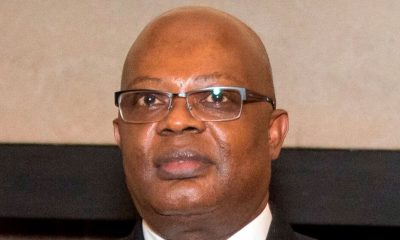
 metro2 days ago
metro2 days agoRivers administrator demands N300m refund from NBA after relocating conference
-
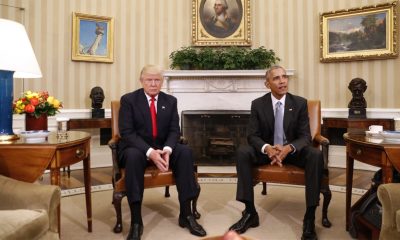
 International2 days ago
International2 days agoObama reacts as Trump freezes $2.3b Harvard University funding
-

 Politics2 days ago
Politics2 days ago2027: PDP governors reject alliance of opposition parties
-

 metro1 day ago
metro1 day agoBREAKING: Court strikes out defection suit against 27 pro-Wike Rivers lawmakers
-

 Insurance15 hours ago
Insurance15 hours agoLasaco Assurance Plc attains ISO/IEC 27001:2022 Certification for Information Security Management
-
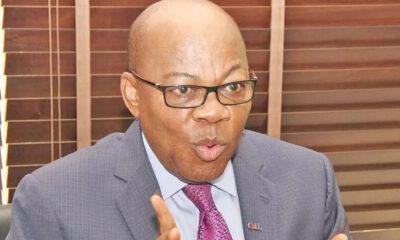
 metro1 day ago
metro1 day agoNatasha’s allegation against Akpabio has contradictions – Agbakoba









